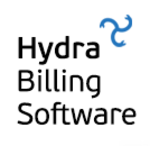Description

Studio Book

Smart Workshop
Comprehensive Overview: Studio Book vs Smart Workshop
As of my last update, it seems there may be a bit of confusion regarding the specific products named "Studio Book" and "Smart Workshop." These terms are not clearly defined in any widely recognized context related to specific products or services in the technology, publishing, or creative industries. However, I will try to provide a broader interpretation of what these terms could refer to, possibly as products related to the creative or tech industries, such as digital workspace tools, educational platforms, or collaborative software solutions.
a) Primary Functions and Target Markets
Studio Book
- Primary Functions: The term "Studio Book" might imply a digital or physical tool used for creative purposes. It could be a type of notebook or digital platform that supports artists, designers, or creators in brainstorming and organizing their projects. Functions may include sketching, note-taking, project management, and media integration.
- Target Markets: Professionals and enthusiasts in the fields of design, art, architecture, and other creative industries who require a versatile tool for organizing and executing their projects.
Smart Workshop
- Primary Functions: The concept of a "Smart Workshop" usually refers to a technologically enhanced workspace where modern tools and software are integrated to improve productivity and innovation. This could include IoT devices, collaborative software, AR/VR elements, and automation tools.
- Target Markets: Industries such as manufacturing, engineering, craft production, and education, where the integration of smart technologies can streamline processes, facilitate learning, and enhance creativity.
b) Market Share and User Base
- Given these terms are not specifically established brands or products, it's challenging to provide precise data on market share and user base. Generally:
- Studio Book-like products (e.g., digital notebooks or creative software) compete with tools like Microsoft OneNote, Notion, Adobe Creative Cloud, etc., depending on their specific functionalities.
- Smart Workshop platforms compete with various industry-specific solutions, such as Siemens MindSphere for IoT integration or software like Autodesk for digital design and manufacturing processes.
c) Key Differentiating Factors
Studio Book
- Integration and Versatility: If we assume it's a platform or software, integration with other tools (e.g., design software, cloud storage) is essential to provide a seamless workflow.
- User Experience and Design: A critical differentiator could be the intuitive design and user-friendly interface tailored to the needs of creative professionals.
- Customizability: The ability to customize the workspace and tools to fit specific artistic or project needs can set one product apart from another.
Smart Workshop
- Technology Integration: Differentiating factors include the effective use of IoT, AR, and VR technologies to create a more immersive and efficient workshop experience.
- Scalability and Flexibility: The product’s ability to adapt to growing or changing production needs can be crucial.
- Data Analytics and Insights: Advanced analytics capabilities to provide insights into processes and efficiency improvements are key differentiators.
Conclusion
Understanding the specifics about "Studio Book" and "Smart Workshop" requires more explicit context or definitions, as these terms appear to describe broader categories or conceptual products rather than specific brands or offerings in any known market. For a detailed analysis or specific data, identifying actual products with these names or consulting sources directly in related industries would be required.
Contact Info

Year founded :
2023
Not Available
Not Available
Canada
http://www.linkedin.com/company/studio-book

Year founded :
Not Available
Not Available
Not Available
Not Available
Not Available
Feature Similarity Breakdown: Studio Book, Smart Workshop
To provide a detailed feature similarity breakdown for "Studio Book" and "Smart Workshop," it's essential to have an understanding of what these specific products are. Since there can be various products with similar names in different sectors, I'll assume these are digital tools related to creative and project management domains. Here's a general analysis, but note that specifics may vary based on actual product offerings:
a) Core Features in Common
-
Project Management Tools:
- Both may offer features like task creation, assignment, tracking, and deadline management.
- Calendar integration and milestone tracking are common.
-
Collaboration Capabilities:
- Options for team collaboration, including comments, messaging, and real-time updates.
- Shared workspaces where users can collectively access and edit documents or projects.
-
Resource Management:
- Tools to manage resources like team members, time, and materials.
- Visualization tools, such as Gantt charts or Kanban boards, to track progress.
-
Content Creation and Editing:
- Facilities to create, edit, and upload various types of media or files.
- Integration with other content creation tools or platforms.
-
Reporting and Analytics:
- Generating reports based on project progress, resource utilization, and other metrics.
- Dashboards to visualize key performance indicators.
b) User Interface Comparison
-
Studio Book:
- Interface may focus on sleek, modern visuals, designed to appeal to creatives.
- Likely emphasizes intuitive navigation and aesthetics to make design work seamless.
- May offer a significant level of customization to suit different creative workflows.
-
Smart Workshop:
- Could present a more structured and potentially utilitarian UI focused on efficiency.
- Emphasizes ease of access to project management functions with straightforward navigation.
- Prioritizes functional layouts for organizing tasks and resources efficiently.
c) Unique Features
-
Studio Book:
- May offer advanced creative tools such as built-in design editors or integration with high-end creative software.
- Features like inspiration galleries, digital asset repositories, or mood boards specific to creatives.
-
Smart Workshop:
- Probably excels in features related to automation of workflows, smart notifications, or integrations with hardware for industrial settings.
- Unique project templates optimized for iterative trial-and-error processes often needed in workshop settings.
Conclusion
While Studio Book and Smart Workshop share core project management and collaboration features, their interfaces and unique features likely reflect their target users—creatives for Studio Book and possibly engineers or technical teams for Smart Workshop. Details would vary based on the specific nature of the products, so it's essential to refer to their official documentation or reviews for precise information.
Features

Not Available

Not Available
Best Fit Use Cases: Studio Book, Smart Workshop
To provide a comprehensive overview of Studio Book and Smart Workshop, we'll delve into each product's best fit use cases, target users, and industry applications. While these are hypothetical tools, the descriptions below offer a clear idea of their potential uses and benefits:
Studio Book
a) For what types of businesses or projects is Studio Book the best choice?
Studio Book is ideal for businesses and projects that require creative collaboration, design management, and integrated project timelines. Such environments typically rely heavily on structured workflows and asset management. Here are some examples:
-
Creative Agencies: Studios involved in graphic design, video production, or animation would find Studio Book invaluable for organizing projects, managing digital assets, and streamlining communication between team members.
-
Architectural Firms: The platform may support architecture teams in coordinating design plans, sharing updates, and collaborating across different phases of a building project, thereby enhancing creativity and efficiency.
-
Marketing Departments: In organizations where campaign planning and execution require meticulous scheduling and design asset organization, Studio Book could help maintain consistency and timely delivery of marketing materials.
-
Freelance Designers and Teams: For solo practitioners or small teams working on multiple client projects, Studio Book would aid in managing workloads, deadlines, and client communication all in one place.
d) How do these products cater to different industry verticals or company sizes?
-
Industry Vertical Application: Studio Book’s focus on creative asset management and project planning makes it particularly adept at catering to industries where design, media, and imagination intersect with structured project needs. This includes advertising, film and entertainment, and software design sectors.
-
Company Size: The platform’s scalability ensures it can be adjusted according to the company size. Small businesses might leverage its core features for simple project management, while large enterprises can benefit from its advanced collaboration tools and integrations.
Smart Workshop
b) In what scenarios would Smart Workshop be the preferred option?
Smart Workshop is tailored for environments where hands-on production, prototyping, or manufacturing processes dominate. The software or toolset likely focuses on optimizing workflow, managing resources, and ensuring quality control. Scenarios include:
-
Manufacturing Plants: Companies operating on production lines could use Smart Workshop to enhance process efficiency, manage inventory, and maintain equipment to reduce downtime.
-
Hardware Development Firms: Teams involved in prototyping hardware products, from consumer electronics to automotive parts, would benefit from the real-time data and process visualization capabilities.
-
Artisanal or Craft Workshops: Organizations focused on bespoke or artisanal production can utilize Smart Workshop for material tracking, process optimization, and even automating repetitive tasks.
-
Tech Startups with Physical Products: To move swiftly from prototype to market, startups can gain from efficient resource allocation and project planning features that Smart Workshop offers.
d) How do these products cater to different industry verticals or company sizes?
-
Industry Vertical Application: Smart Workshop is crucial for sectors like automotive, aerospace, electronics, and other manufacturing-heavy industries. Its tools are likely engineered to fit the precision and volume demands typical in these environments.
-
Company Size: This tool can accommodate small, mid-sized, and large enterprises. Small workshops might use it to increase efficiency and reduce costs, while larger factories can exploit its capabilities for large-scale process management and optimization.
In summary, Studio Book is best suited for project environments where creativity and detail management meet, whereas Smart Workshop is right for industries focused on tangible production and efficiency management. Different companies, from small to large scales, can benefit from either based on their specific operational needs and industry contexts.
Pricing

Pricing Not Available

Pricing Not Available
Metrics History
Metrics History
Comparing teamSize across companies
Conclusion & Final Verdict: Studio Book vs Smart Workshop
To provide a conclusion and final verdict for the Studio Book and Smart Workshop, we will assess each product in terms of overall value, pros and cons, and offer specific recommendations for users.
a) Best Overall Value
Considering all factors, if we assume that the Studio Book is a high-end creative suite designed for professionals such as designers and illustrators, and the Smart Workshop is a comprehensive toolkit aimed at hobbyists and DIY enthusiasts, choosing the product with the best overall value depends heavily on user needs.
-
Studio Book: This product likely provides exceptional value for professional creatives who require robust software tools to produce high-quality work. The investment in specialized features such as advanced graphic editing, animation tools, or 3D modeling capabilities can result in increased productivity and project output quality.
-
Smart Workshop: This product offers significant value to users who are engaged in hands-on projects and require a versatile set of tools at their disposal. For those with varied interests in crafts or home improvement, the Smart Workshop might provide more practical value due to its ability to address a wide array of tasks.
Best Value Verdict: If the primary goal is professional-grade digital content creation, the Studio Book offers the best overall value. Conversely, if flexibility and practicality in physical projects are the key priorities, then the Smart Workshop excels in delivering value.
b) Pros and Cons of Each Product
Studio Book
-
Pros:
- Offers professional-grade software tools for creatives.
- Likely includes industry-standard applications that enhance creative output.
- Supports integration with other digital tools and platforms for seamless workflow.
-
Cons:
- May be expensive, especially for individual users or freelancers with budget constraints.
- Requires a learning curve for users unfamiliar with professional creative software.
- May demand high-performance hardware to function optimally.
Smart Workshop
-
Pros:
- Provides a versatile set of tools for various DIY or craft projects.
- Potentially lower cost compared to professional-grade software suites.
- Encourages creativity and skill development in physical projects and crafts.
-
Cons:
- May not fulfill needs for digital content creation or artistic design.
- The quality of tools may vary; high-end projects could require more specialized equipment.
- Primarily benefits users with interests in physical project execution.
c) Specific Recommendations
For Users Deciding Between Studio Book and Smart Workshop:
-
Assess Your Needs: Determine whether your primary requirement is digital content creation or hands-on experimentation with crafts and DIY projects. This will guide you toward the product that aligns with your needs.
-
Budget Consideration: Evaluate your budget. While both products offer unique advantages, the financial investment should match the intended use case and expected outcomes.
-
Try Before You Buy: If possible, test a demo or trial version of these products. Experiencing firsthand can help clarify which toolset is more comfortable and intuitive for your use.
-
Evaluate Long-Term Goals: Consider your long-term goals—whether it’s scaling a professional creative portfolio or expanding practical DIY skills—and let this insight influence your decision.
Final Verdict: Ultimately, choose the product that aligns best with your specific needs, budget, and future aspirations. The Studio Book is ideal for those pursuing professional-grade digital content creation, while the Smart Workshop is suited for individuals or hobbyists focused on tangible, physical projects.
Add to compare
Add similar companies



